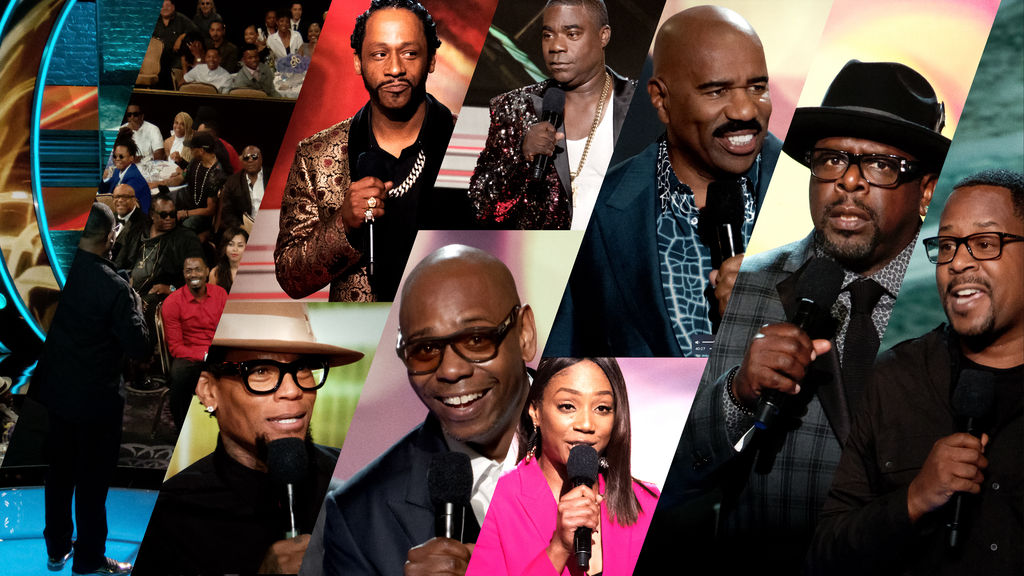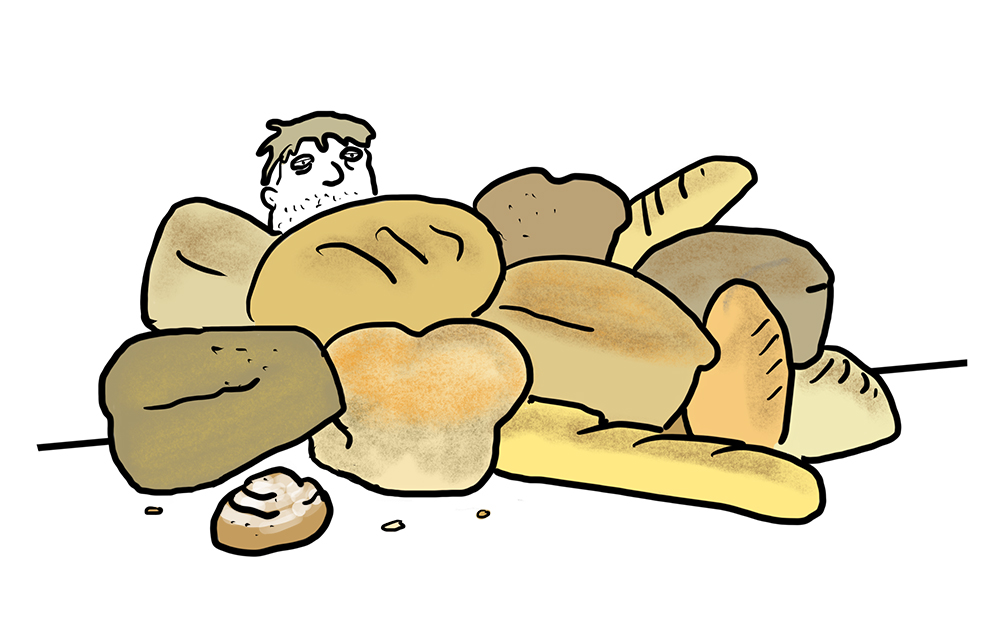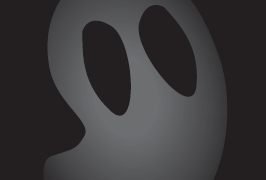
“There’s a fucking white supremacist starter kit at Target…It’s real right now.” Stand-up comedian, Dave Chappelle, slammed Trump-era racism from the stage of the “Def Comedy Jam” 25th Anniversary as the crowd erupted in laughter. Then, in a more serious tone, he continued, “If we told them what being black in America was, would they believe us?” The anniversary event celebrated the laughter and legacy of the “Def Comedy Jam” television series that exploded in the mid 1990s. In a decade charged by race relations, the Def Jam comedians became a loud, unprecedented voice that confronted mainstream culture, and expanded the capacity comedy has for social commentary and change.
The series was produced in response to the surge of stand-up comedy witnessed in the ‘90s. White comedians like David Letterman, Ellen DeGeneres, and Bill Maher launched their comedy careers from the stages of late night talk shows. Black comedians, however, weren’t given the same opportunities. As published in the New York Times, Jason Zinoman writes, “The major network talks shows then rarely [booked] you black comics…[and] the most storied clubs mainly booked white comics.” Black comedians would primarily perform in pioneering clubs like the Uptown Comedy Club in Harlem or the Comedy Art Theater in Los Angeles. The clubs had very segregated audiences with very little racial crossover.
Russell Simmons, co-founder of Def Jam Recordings, noticed this absence of televised black comedians and decided to expand his hip-hop empire into television production. When the show premiered on HBO in 1992, there was nothing like it on television.
The microphone was passed to comedians like Chris Tucker, Sheryl Underwood, Leslie Jones, and Eddie Griffin, who had been performing for years, waiting for their chance to make a name for themselves. When they finally got their spotlight on Def Jam Comedy, they filled the theater with an unparalleled energy that echoed into living rooms across the nation.
At the Anniversary event, these comedians took the stage to show appreciation and to reflect on their experiences with Def Jam. Through a blend of speeches, clips from the ‘90s Def Jam stage, and pre-taped interviews with comedians like Chris Rock and Kevin Hart, the event recalls the culture, impact, and prosperity of the series and its performers. The overall sentiment of the event is one of nostalgia and camaraderie as comedians delivered heart-warming speeches praising their peers and giving thanks to the people that enabled them to succeed. The series’ host, Martin Lawrence was nearly moved to tears when Tracy Morgan pointed to him as his inspiration to do stand up. Adele Givens was celebrated as an iconic comic who made more appearances on the show than any other performer and was given the stage to perform one last Def Jam routine. Bernie Mac, who passed away in 2008, was paid heartfelt tribute as one of Def Jam’s most iconic comics.
“Def Jam Comedy introduced comics you would have never had seen otherwise,” Chris Rock said in a pre-recorded clip displayed at the Def Jam Anniversary, “Bernie Mac’s like the Satchel Paige of stand up. He was killing it for years. No one would put him on TV. Def Comedy puts him on TV and he’s a mega star basically in, like, two years.”
Def Comedy Jam gave a voice to unknown black comedians, but it also gave a voice to unspoken issues of race relations and the experience of being black in The United States. Their routines often scrutinized racial issues like police brutality, the L.A. riots, and the O.J. Simpson trial from the perspective of the black community, a voice that was often muted in mainstream media. From the Def Jam stage, Michael Colya spoke about the March 3, 1991 police beating of Rodney King, and remarked, “Only white folks were shocked when they saw that tape. Police whooping black folks in a black community ain’t no new shit. When I saw that I thought it was a new Timex Commercial.”
After the upset proceeding O.J. Simpson’s acquittal, Dave Chappelle stated, “Every prison is filled with niggas, overcrowded with niggas. One motherfucker gets away and they go, ‘Hey! We gotta take a look at the justice system! It’s not working!’” In a routine based on the same issue, Leighan Cord said, “I actually heard white people say they were so upset and angry with the verdict that they couldn’t sleep…Well, you know, black people have had insomnia for 400 years.” Def Jam comedians didn’t curb their acts to a clean-cut, composed formula that was frequently adopted by other black comedians, such as Bill Cosby, whose national success relied on benign, agreeable humor that appeased the white, middle-class audience and their wealthy, white, male producers.
Their unapologetic honesty led to inevitable controversy from its first release. Writer and producer Nelson George recalls, “Many people who were part of the Civil Rights generation couldn’t stand the Def Comedy Jam, because they…[were trying to] advance our civil rights agenda, or national agenda, and having niggas on camera going ‘motherfucker!’…was not part of their agenda.”
The comedians’ routines were often vulgar and riddled with profanity, stories about sex, and, at times, misogynistic humor. Def Jam was criticised for desensitizing or even supporting racism and negating the work of other black public figures attempting to eradicate stereotypes. The show’s content, however, didn’t diverge very drastically from that of white comedy routines. White comedians like Andrew Dice Clay, a notoriously foul comic who bashed gays, women, and minorities consistently, never faced the same criticism. Zinoman writes, “[Def Comedy] pigeonholed by critics who single-mindedly focused on the profanity and applied moral standards never used for their white counterparts.”
The controversial content of Def Jam routines is the very essence of the provocative quality that allows good comedy to push an audience to not only laugh, but to reflect. These black comedians refused to yield to the white middle-class and the parameters of its experience as the privileged majority. While much of television aimed to keep the audience feeling safe and comfortable, these performers tried to shock, embarrass, and enlighten.
At the Def Jam Anniversary, Simmons said, “The comedians were honest in the way they expressed their art, and people got uncomfortable, but it was their truth…if you understood it, it would ring a bell for you; and if you didn’t harbor hate for these people, you learned some sympathy or some compassion, or just laughed with them.” Comedians’ raw honesty developed influential connections with the audience, either through solidarity with their own community or through enlightenment with receptive members of mainstream society. The latter describes the transformative reaction that black comics can generate within their white viewership.
Comedians toy with mainstream stereotypes and assumptions through brazen humor aiming to startle and shake the crown out of their comfort zones and into a new frame of mind where they are confronted with their own perspectives and biases. From the ‘90s’ Def Comedy stage, Adele Givens broke down the framework of the feminine with her infamous trademark line, “I’m such a fucking lady.” At the Anniversary event, Givens explained its origins: “There’s a double standard in the world, as we know. Men can do shit that women can’t do. I would be out doing my stand-up and when I get off people, even women would come up to me…and say, ‘You know, as a lady, you can’t get away with this,’ and the expression was born!’”
In a male dominated industry, Givens had to prove her prowess on the stand-up stage— not by being polite and quiet, but by being her loudest, most outspoken self and rivalling the profanity and bawdiness of her male counterparts. Audience members, alarmed by a woman’s unabashed indecency, ridiculed her for paralleling the male comics. Givens, rather than adhering to their parameters of women’s permissible public behavior, used these social constructs as material to make the audience laugh, and to challenge the formula of how a women are allowed to express themselves. At the Def Jam Anniversary, Tiffany Haddish praised Def Comedy for allowing her to be her authentic self. “It gave us a platform y’all. It was an opportunity for a completely uninhibited female comic to say whatever she had to say without giving a fuck, okay?”
Although “Def Comedy Jam” was the first public platform that paved way for black comedians specifically, comedy has recurrently been used as catalyst for social change. 1950s and ‘60s stand-up comedian, Jackie ‘Moms’ Mabley used humor to dismantle racist imagery. Merriwether-de Vries, quoted in an article written by Roger Cohen and Ryan Richards for Humanity in Action, says, “She made fun of old black women and domestics, never wore a bra, accentuated her droopiness, and made fun of the fact that she had no teeth. In short, she played upon the stereotypes of what was wrong with black women.” Topics that usually make people recoil or switch subjects can be uniquely discussed and received when spoken from the stand-up stage. The advantageous framework of comedy allows performers to move viewers past their initial cringe and into laughter, providing them the opportunity to consider these sensitive issues comfortably. Beneath the satire, there is an impactful dialogue of social commentary and critique.
Comedy Central’s Greg Giraldo describes the power of good comedy to Cohen and Richards, “A good joke provides tension, and then release of that tension…You build the tension by saying things that are controversial. The release is the laugh. The bigger the surprise or insight in your joke, the bigger the laugh.” On that account, a certain offensive or alarming quality is essential in good comedy and is requisite for social change. While some comedians implement shock-value humor simply to rattle the audience without any underlining meaning, good comedians’ provocative content must reflect themselves and their community. Instead of making jokes about a targeted group, Def Jam comics take ownership of the stereotypes in order to dismantle and reconstruct the social phenomena or image. Comedians become advocates for communities whose voices and truths are often muffled by mainstream, majority culture.
The arrival of Def Comedy desegregated the previously polarized stand-up viewership and paved the way for other comics from marginalized communities to gain visibility. Today, there is a wide range of platforms for comedians to gain face, and mainstream society has begun to recognize the virtue of diversity on the stand-up stage, allowing more communities’ voices to be heard.
Nearly all facets of society are represented and esteemed in stand-up comedy today and the routines are increasingly personalized and pioneering. Margaret Cho is a notably politicized comedian who speaks on personal subject ranging from her Vietnamese family, her bouts with eating disorders and substance abuse and her bisexuality. Ali Wong recorded her most recent stand-up special in 2016, “Baby Cobra”, while she was seven months pregnant, breaking uncharted territory with jokes about breast milk and after birth. Maz Jobrani, an Iranian-American who moved to the U.S. when he was six, uses his comedy to show the diversity of culture in the Middle-East, a region that often misunderstood as homogenous. Comedians like Marc Maron, Maria Bamford, or Neal Brannon dismantle the taboo of mental illness by speaking openly about their experiences with psychiatrists and psychiatric care.
As times change, stand-up comedy continues to shift its themes and focus according to the social issues that need addressing. In their article, Cohen and Richards write, “The need for good stand-up comedy is ever renewing, as demographics and social concerns cause new rifts and stereotypes in American society.” Just as Def Jam Comedy addressed the pertinent issues of the ‘90s, comics continue to reflect the social climate and give the insight necessary for fostering change.
Caught in the rising wake of Trump’s deportation agenda, Latino comedians are on the rise against the whitewashing. Pedro Herrera III, better known by stage name, Chingo Bling, is a Mexican-American rapper that has recently turned to stand-up comedy to confront racist, anti-immigration sentiment. His debut comedy special “They Can’t Deport Us All” is structured on the experiences, fears, and absurdities endured by the Mexican community in the U.S.
In an era when Americans are increasingly confronted with issues of identity and who has the right to claim it, comedians like the Def Jam comics, and the countless female, queer, Latino, or Asian comedians taking the stage remind us that a country founded by immigrants, diversity is what defines us and there is no room for mainstream culture. Comedians are becoming a leading force in deconstructing cultural homogeneity using their voice to stand up for equality for communities that are suppressed and muted. Achieving this means disregarding the confines of majority culture and comfort and pushing boundaries to make room for a broadened understanding of our vastly diverse planet.
As stated by Indian-American Muslim comedian, Azhar Usman, “The stand-up is quintessentially an American art form and is a form of political protest. There’s a history of the underdog using standup comedy to speak truth to power. People take notice and are transformed by the experience.” In a world where inequality continues to isolate, silence, and degrade, comedians who take a stand and take the stage to speak for the suppressed perform an indispensible role in creating a more accepting, coalesced society. Comedian, D.L. Hughley reminds us as he brings Def Comedy Jam to a close, “Sometimes when you’re expressing the thought of the minority, you run the risk of being rejected by the majority, but that rejection should not be the reason you stop, it should be an inspiration for you to continue.”
This article originally appeared in the print edition of our November 2017, issue.




